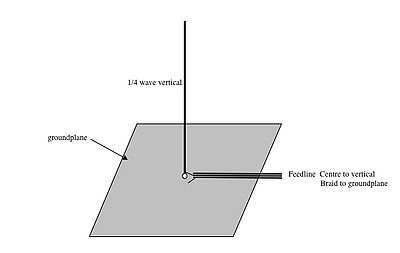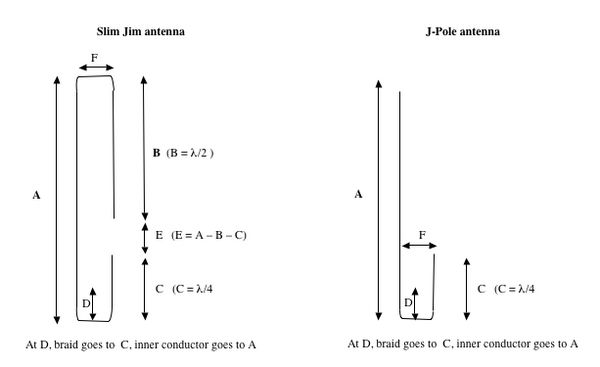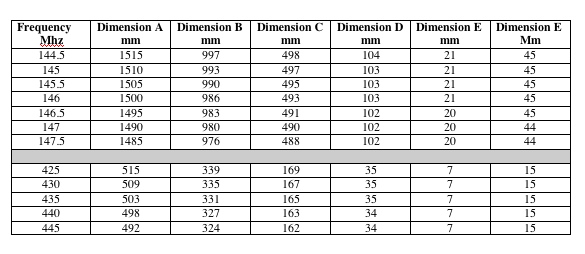Vertical antenna: Difference between revisions
TheAnarcat (talk | contribs) No edit summary |
|||
| Line 46: | Line 46: | ||
== Phased Vertical Arrays == | == Phased Vertical Arrays == | ||
== External links == | |||
* [http://www.iv3sbe.webfundis.net/html/Rybakov806.htm IV2SBE Rybakov 806 Multiband Antenna] | |||
* [http://www.bencher.com/ham/index.php?main_page=product_info&products_id=14 Butternut HF9V 80-6 9-Band Vertical Antenna] | |||
{{antennas}} | {{antennas}} | ||
Latest revision as of 20:45, 21 November 2010
Related wiki pages: Antennas, Propagation, Feedlines
Vertical antennas, often simply known to amateurs as "verticals," are antennas in which the driven element is vertical. Most common verticals are simply a piece of wire or aluminum tubing mounted vertically, but others, such as those designed for mobile use, are significantly more complex.
1/4 wave Vertical
A quarter wave vertical is electrically equivalent to one half of a center fed dipole that is oriented vertically rather than horizontally. The other half of the dipole is in effect a reflection in the ground-plane of the vertical element.
The ground-plane need not actually constructed of solid material. Just as effective is four radials or "arms" at right angles to each other.
For best results the radials may be perpendicular to the vertical element or angled downwards at about 45 degrees.
5/8 Wave Vertical
1/2 Wave Vertical
A half wave vertical is electrically equivalent to a center fed dipole that is oriented vertically rather than horizontally. The other half of the dipole is in effect a reflection in the ground-plane of the vertical element.
Slim-Jim and J-Pole antennas
Indicative dimensions for Slim-Jim and J-Pole antennas
- Note that the Slim-Jim only uses dimensions A, D, F and C
Importance of Ground
Ground Radials
Elevated Ground Plane
Efficiency
Refer to KE4UYP's Vertical Antenna efficiency article for more discussion.
Loaded Verticals
Antenna loading is the practice of shortening antennas to less than the length that resonance would normally require, then adding reactive elements to bring them back to resonance. They are very useful when the space a full-size antenna would require is not available. All verticals designed for mobile use must use some type of loading.
See antenna loading for a detailed discussion.
Phased Vertical Arrays
External links
| Antennas | |
| Design | Beam * Dipole * Dish or Parabola * DDRR * Log Periodic (LPDA) * Loop * Mobile and portable * Omnidirectional * Panel * Quad and Quagi * Screwdriver * Small tuned loop * Vertical * Yagi-Uda * Wire and random wire antennas |
| Installation | Antenna Tuners * Capacity hats and loading coils * Cavity filters * Coaxial Cable * Feedlines * Rotators * Towers and Masts * VK2ACY - G5RV coupler |
| Theory | Front-to-back ratio * Impedance matching * SWR * Tower design * Vertical Antenna efficiency * Wire comparison tables |


